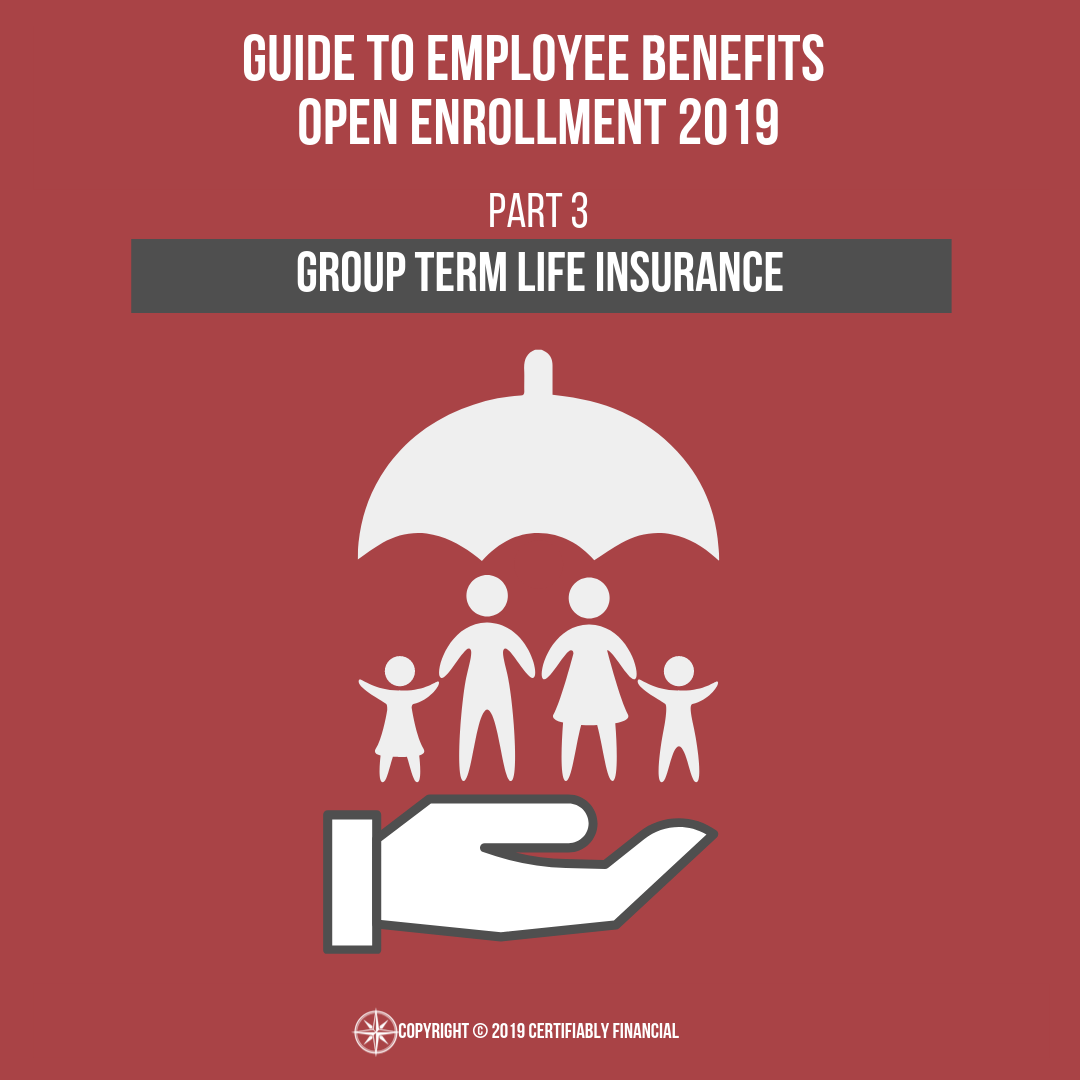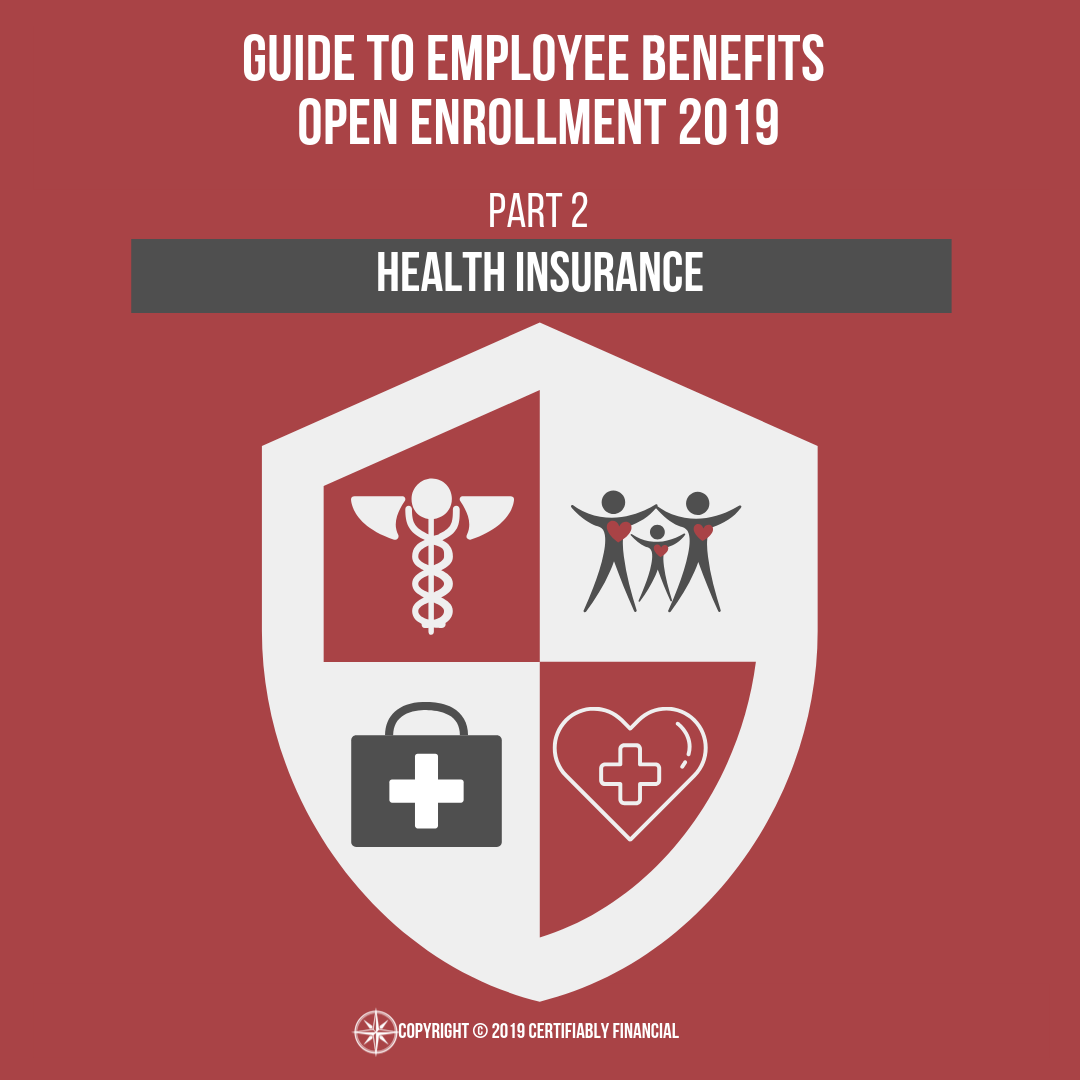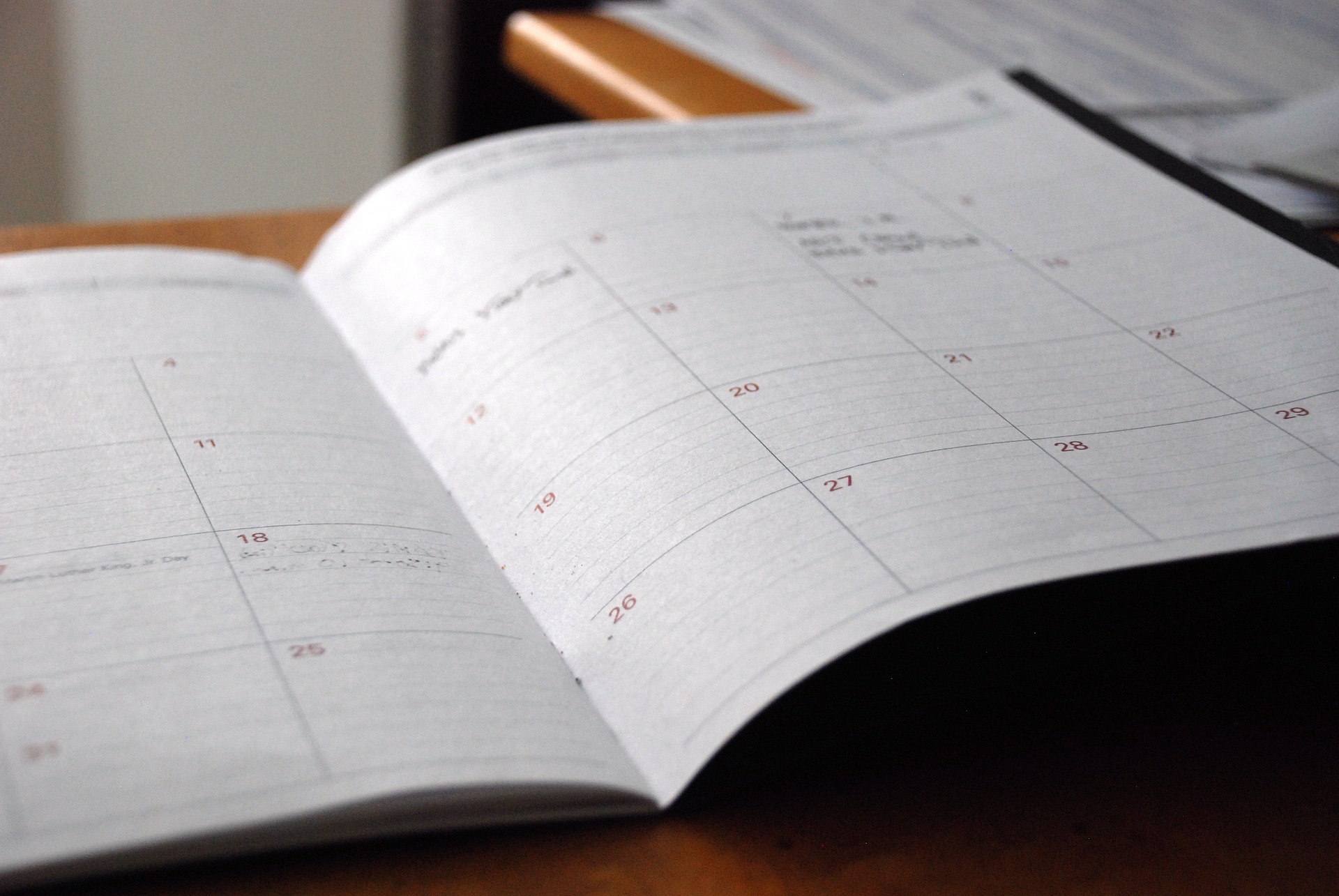Group term life insurance is a very common employee benefit that many people take advantage of. However, not many people think beyond the scope of the coverage offered through their employee benefits to consider why they need the coverage, how long they’ll need it, and if the maximum amount they can get is enough. If there are people who depend on your income and would be financially devastated if something were to happen to you, then this is a benefit that you should be taking more seriously.
Insurance
Guide to Employee Benefits Open Enrollment 2019 Part 2: Health Insurance
When making employee benefits elections during open enrollment, choosing which health insurance option you’re going to go with over the next year seems to be something that almost everyone guesses at. Some people opt to choose the plan with the lowest deductible, some choose the option with the lowest premiums, and some choose whatever is in the middle. The problem with choosing your health insurance plan this way is that no real thought around how your and/or your family’s health situation is taken into consideration. With just a little education, I’m sure we can all figure out which plan might be most appropriate for our own personal situations.
Halfway Through 2019
Somehow, we’re already halfway through the year. I have no idea how that happened, but it did and there are some things that we can do now to evaluate our progress towards our goals, and get ourselves back on track if we need to, that will help to set us up for success over the next 6 months to end the year strong.
Repost: Work Together
In March of this year I wrote an article titled Work Together which speaks about how married couples can optimize their financial lives through combining their personal finances. As I think about and prepare for my wedding this weekend, this is the topic that continues to come to the top of my mind to write about. Not only that, but one of my favorite podcasts published an episode around this topic as well. When I was gathering my ideas, I remembered that this is something I’ve written about before, but I didn’t realize how recently it had been. So, since this is top of mind for me this week, I thought I’d repost the article from March with some additional commentary.
Auto Insurance
Auto Insurance
Since I wrote about my thoughts on cars last week, I thought I would write about auto insurance this week as a follow-up. Most people, even those who you might consider financially responsible, don’t look through their insurance policies to evaluate if the coverage they have is appropriate or if they’re paying too much. A lot of the time I think this may be because they find it to be too confusing and overwhelming. Do you know what coverage you have, or did you just take what the agent told you to? Hopefully, this article can give you some tips to figure out if you have the right insurance in place and/or save you some money.
Rule Of Thumb
There are a lot of financial rules of thumb that are thrown around in articles, on TV, and by so-called personal finance “experts”. What are some of these rules of thumb and what could be wrong with using them for your personal situation?
Pay Up
I moved to a different apartment over the weekend and between everything that comes up during the moving process I was reminded of a money-saving lesson: Sometimes paying a large sum up-front can save you money in the long-run.
Start Simple
3 minute read
Most people have never received personal finance education and have no idea where they should start to begin creating a better life for themselves. The great thing is that you don’t have to fix everything all at once. Starting with anything and progressing incrementally should be the goal. Hopefully this post helps you figure out where you are today and what the next steps are that you can take to begin making progress in your financial life, which hopefully spills over into all other areas of your life as well.
Get Organized
Getting organized is the most basic, but also potentially most daunting task for some. Depending on how in-tune you are with your financial life (and how organized you are in general), this could be a time-consuming project or could just be some tidying up.
I’m very organized in all aspects of my life because I find that it makes things easier for me, helps me to be efficient and accomplish my goals, and relieves stress. Organizing your financial life can do the same things for you and can be your first step towards financial freedom. I’ve already written about this before, so I’ll list the three basic steps that you can take to help you start easing some stress and become more aware of your current personal financial situation:
- Figure out where you’re going to store your documents and passwords
- Gather your login information and important financial documents
- Evaluate your financial situation and set goals
With your financial life organized you’ll be able to evaluate what your current financial situation looks like and where there’s room for progress to make sure that you reach your goals. You can click here to see a list of things that you may want to gather to help you understand where you are and figure out what you need to do to get where you want to be.
Evaluate The Foundation
Once you’ve got your financial life organized, it’s time to evaluate where you are. Three of the most basic, but also most vital things that you can do to create a solid financial foundation are to establish an adequate emergency fund, make sure that you have the proper insurance coverages in place, and pay yourself first by saving for retirement and other goals before spending any of your income. If you have a significant amount of debt that you’re paying off, then you can evaluate whether you should save more or pay it off more quickly.
The process is much simpler than many make it out to be and there’s no need to complicate it more than necessary. Consistency is the hardest part for many in making changes to their personal finances. When something pushes you off track it’s best to get right back to it rather than let it derail you completely. It takes a while to form a habit, so you have to be diligent about focusing on the fundamentals and changing your actions before things begin to come naturally to you. Changing the course of your personal finances, and your life, is worth it.
Do the easy things that will provide you with the most value and bang for your buck and then you can get more complex from there.
Take the Next Step
No matter where you are in the process, do something today to take the next step towards bettering your financial life. Whether you need to get organized, increase your savings by 1%, or you’re ready to seek out a financial planner, progress is progress. Too often people wait until something significant happens in their life to consider their personal finances and the changes that need to be made. Be proactive and make sure that you’re on the right path before a life event forces you to make changes that you didn’t want to.
The Most Overlooked (And Cheapest) Form of Insurance
3 minute read
Today, we’re going to talk about liability insurance. Liability insurance protects you against claims that you have injured someone or damaged their property. The most common forms of this type of coverage are auto insurance and homeowner’s insurance. You probably have these policies in place if you own a car or a house, but have you ever considered what would happen if your coverage amounts aren’t enough?
Liability Coverages
Auto insurance policies can contain several different kinds of coverages including liability limits for bodily injury per person as well as a maximum liability limit covered per accident, liability coverages for property damage, collision coverage, comprehensive coverage, and a few others.
In Indiana, the minimum amount of auto insurance liability coverage is $25,000 bodily injury per person, $50,000 bodily injury per accident, and $10,000 property damage per accident. These limits are commonly quoted like this: $25,000/$50,000/$10,000.
Imagine being late to work. You rush out the door with your bag, coffee, and breakfast in hand (three things to carry, two hands) all the while thinking about how you’re going to get to work on time and make it to that meeting without everyone noticing you’re coming in late.
You hop in your car and you’re on your way to work. You grab your phone in one hand to send a quick email to your boss and still have your breakfast in your other hand because you’re starving and haven’t had time to think to set it down or eat it. The next thing you know, you’ve caused a massive wreck on a backed-up highway.
Think of all the potential injuries caused by a serious accident on a backed-up highway during rush hour. The cost of surgeries, ambulance rides, and potential grievance settlements could add up quickly.
Do you have enough auto insurance to cover the accident that you caused?
Similar to auto insurance, homeowner’s insurance policies also have liability coverage limits. This coverage protects you if someone were to be hurt on your property from slipping on ice on your sidewalk or the steps to your house, a child falling out of a tree or jumping off a trampoline and breaking a bone, someone being hurt in your yard, an accident at your pool, or anything else you could imagine that could cause harm to others on your property. This is not an exhaustive list of what the policy will cover, but an example of some of the more common situations.
Homeowner’s liability insurance coverages are in place to pay for a lawyer to defend yourself against lawsuits from accidents such as those listed above and can also pay for the cost of damages that you owe resulting from such a lawsuit.
Umbrella Insurance
Most people have probably heard of umbrella insurance but aren’t exactly sure what it is. Think of an umbrella policy exactly as the name implies. The policy provides extra liability coverage in addition to your auto and homeowner’s policies and “sits on top” of them to provide you protection, just as an umbrella would cover your head from rain. (Google the term “umbrella insurance” for a much better depiction of this.)
If you caused an accident that resulted in $500,000 of medical bills and litigation and had $50,000 of auto liability insurance (Indiana’s minimum), then you’d have to figure out how to pay the outstanding $450,000. You’re probably not in a position to write a check for $450,000. However, if you had an umbrella policy in place, then it would pick up the remaining $450,000 and pay on your behalf.
To obtain an umbrella policy in Indiana, your insurance company will likely require you to increase your auto liability limits to $250,00/$500,000 and your homeowner’s liability limit to $300,000 or $500,000
Umbrella policies typically begin at coverages of $1,000,000 and are sold in increments of $500,000 or $1,000,000 after that. I usually see these policies costing $200 – $250 per year. That’s 20-25 cents per $1,000 of coverage.
Find cheaper insurance coverage than that.
Who Needs It?
Umbrella insurance can be beneficial to anyone considering the significant amount of medical bills and litigation that can result from accidents in today’s litigious society. This type of policy becomes very important to those who have a net worth in excess of the liability coverages of their homeowner’s and auto insurance policies. Business owners and those with a very high net worth can become a “target” for litigation as the attorney who is suing them starts to see quite a few dollar signs floating around.
Having an umbrella policy in place is important to make sure that you’re protected in the case of an accident and that your personal assets wouldn’t be drained. It’s the cheapest form of insurance that I know about and can be a financial life saver if you ever need it.
Health Insurance Marketplace Open Enrollment 2018
4 minute read
Navigating the health insurance marketplace is very confusing, as I wrote about in September when I turned 26 and had to find a marketplace policy for myself. There are many things to consider such as costs, the type of plan offered, and if your preferred physicians are in the plan’s network.
Different Kinds of Plans
There are several different types of health insurance plans that provide different benefits of which you should be aware. These include Health Maintenance Organizations (HMOs), Preferred Provider Organizations (PPOs), Exclusive Provider Organizations (EPOs), Point-of-Service Plans (POS), and High-Deductible Health Plans (HDHPs).
All of these names seem pretty complicated and don’t really appear to mean much on the surface without diving into them. Out of the 22 plans available through HealthCare.gov in Indiana, the only two types available are HMOs and EPOs, so we’ll focus mainly on these two types of plans. Of those plans, two are HSA-eligible – one is an EPO and one is an HMO.
Here are some important things to know about each type of plan available in Indiana:
Health Maintenance Organizations (HMOs)
- Typically, you must choose a primary care physician and first consult with them before being able to see a specialist.
- Without a referral to a specialist from your primary care physician, you’ll have to pay all costs out-of-pocket.
- HMOs limit you to receiving care from physicians that are contracted with them – this is commonly referred to as the “network”.
- If you receive care (other than emergency care) from an out-of-network physician, then you’ll have to pay out of pocket for those services.
- HMOs can provide cheaper premiums than some other types of health insurance (such as PPOs) since they direct patients towards in-network physicians for an agreed upon amount.
Exclusive Provider Organization (EPO)
- Similar to HMO but may provide a different network.
- May not require that you have a primary care physician.
- Doesn’t require referrals from your primary care physician to see a specialist.
- EPOs limit you to receiving care from physicians that are within the plan’s network (except for emergency services). Otherwise, they won’t pay for the care.
- May provide a larger service area than an HMO.
HSA-Eligible High Deductible Health Plans
- A HDHP is a health insurance plan with a high deductible. Duh. The deductible is the amount that you have to pay before insurance kicks in.
- In 2019, the minimum deductible that a plan can have for self-only coverage to be considered an HDHP is $1,350 and double that at $2,700 for family plans.
- The maximum out-of-pocket expenses for HDHPs in 2019 is $6,750 for individuals and $13,500 for families.
- There are two HDHPs on the marketplace in Indiana – one is an HMO and one is an EPO.
- These plans are the only plans on the market in Indiana that are eligible to be paired with a Health Savings Account (HSA). Even those other plans that have deductibles high enough to be considered “high deductible” plans are not HSA-eligible.
- The 2019 HSA contribution limit for individuals is $3,500 for self-only coverage and $7,000 for those with family coverage.
Choosing between the HMO and EPO really comes down to which network works for you and if you want to be able to see a specialist without a referral from your primary care physician. You can visit each insurance company’s website to review their networks and see if your physicians are in them.
Don’t Go Without It
Don’t wait until December 15 to apply for health insurance coverage for 2019. Login (or create) an account and get a lay of the land. Take some time to figure out what plan is the best for your situation before applying to make sure that you’re making the best decision for you.
Some may think that they’ll just forgo the cost of health insurance since they could save so much and use that money for other things. That’s not a very good idea.
Life is unpredictable, and tragedy could strike at any moment. It’s not what we want to think about, but we must consider that something like a serious car accident is a potential for those of us who drive or take a ride sharing service to work every day. Even something as small as slipping and falling, or anything else that could lead to an emergency room visit, could result in extremely costly medical bills that could be devastating without insurance.
Just as the old saying goes, insurance isn’t something that we like paying for but it’s something that we’re glad is in place once the time comes that we must use it. Yes, health insurance is expensive, but paying for an accident without health insurance is much more expensive.










